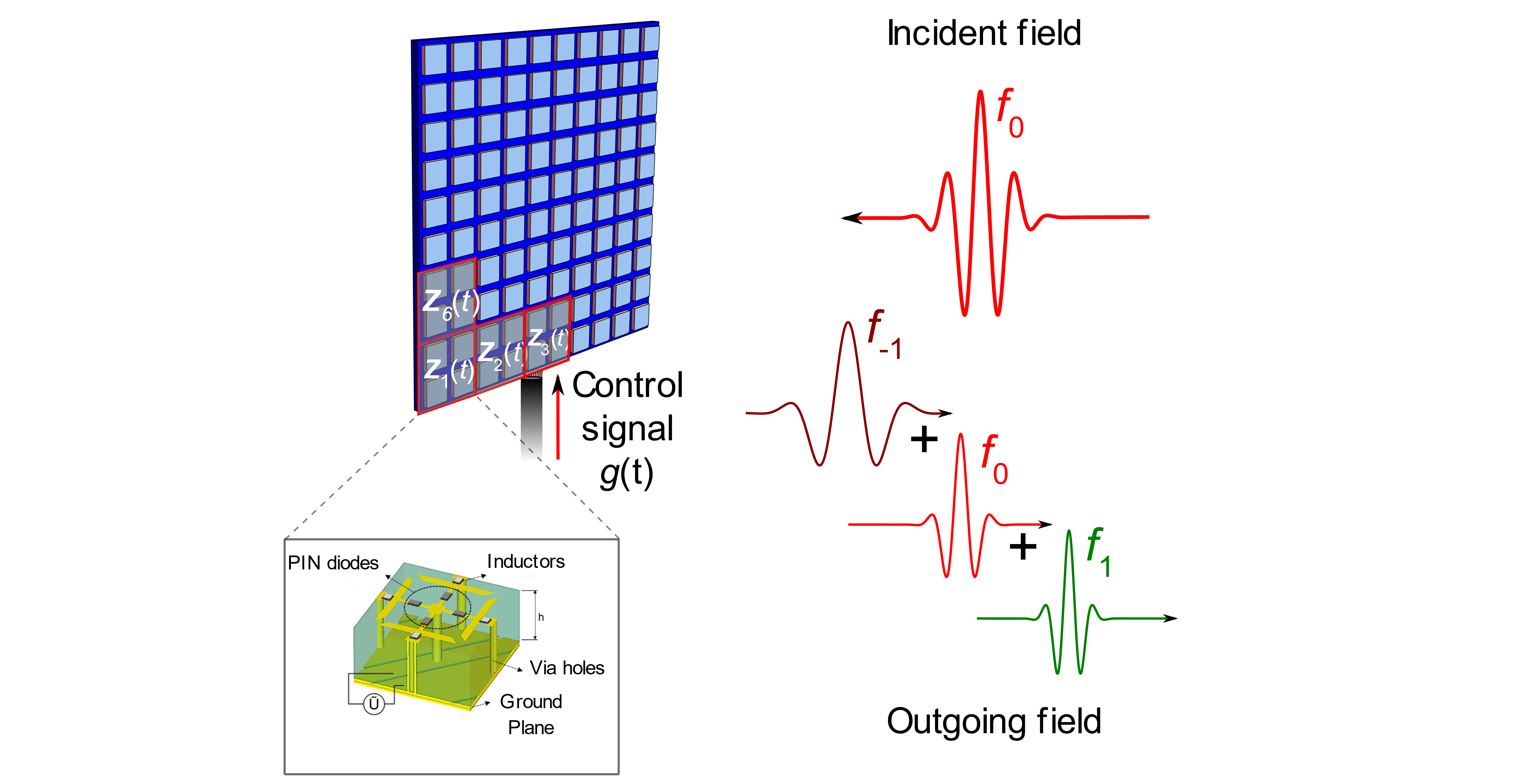Meta4D
Meta4D
Next generation metamaterials: Exploiting four dimensions
Researchers in the Centre for Metamaterial Research and Innovation (CMRI) are part of an exciting new £7.7m EPSRC project looking into manipulating metamaterials in the fourth dimension: time.
The Meta4D project sees CMRI academics collaborating with researchers from King's College London and lead institution Imperial College London to study the manipulation of waves, such as light waves or acoustic waves, using tailored metamaterials that vary in time instead of space.
Spatial reflections occur when a wave hits a boundary in space, which is why you hear echoes as sound bounces off walls or see your own reflection as light bounces of a mirror. By considering time as the fourth dimension, we can think about what happens when a material in which a wave is travelling in abruptly (i.e. in time) changes it properties: a phenomenon known as a time reflection can occur.
Such energy that ‘reflects in time’ does not change its direction, but instead changes its frequency and energy. Ultimately by fabricating a metamaterial with structure in time and space, its possible to gain complete control of waves, such as direction, energy, reflection, speed, and colour.
CMRI researchers contributing to the Meta4D project include:
 |
 |
 |
 |
 |
|
They form part of the Meta4D project alongside academics from partner institutions:
 |
 |
 |
 |
 |
 |
 |
 |
 |
The Meta4D consortium sees CMRI academics collaborating with academic and industry partners:
The Meta4D project aims can be split into 4 research themes:
- Time-modulation,
- Space-time modulation,
- Amplification in space-time,
- Topology in space-time.

Check out the initial reports from the University of Exeter about the news here.
For more news on the latest developments on this project, see the Centre for Metamaterial Research and Innovation (CMRI) blog.

